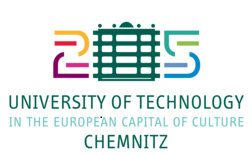Special Issue Call for Papers: Migration and Education – An Integrated Research Perspective
Special Issue Editors:
Dr. Gürkan Sarıdaş, Educational Management, Ministry of National Education, Denizli, Turkey
Special Issue Call for Papers: Migration and Education – An Integrated Research Perspective
Migration represents one of the most complex structural and social dynamics shaping contemporary educational systems. The ongoing global movement of populations challenges educational institutions to develop innovative strategies and reassess existing practices to meet the evolving needs of diverse student groups.
This special issue aims to explore how educational systems can foster both academic and social integration for migrant students. It seeks contributions that examine holistic approaches to support migrant learners, including language acquisition programs, psychological and social support services, and models for family engagement.
Key thematic areas include:
- Educational Integration Strategies:
- Adaptation programs for migrant students
- Culturally inclusive curriculum design
- Approaches to foster social cohesion in education
- Social Dynamics in Education:
- The impact of migration on educational systems
- Identity formation and belonging
- Equity of opportunity in education
- Support Mechanisms:
- Language acquisition programs for academic and social success
- Psychological and social support for migrant students
- Family engagement models to strengthen school-community partnerships
Expected Contributions:
- Culturally responsive educational models
- Effective support mechanisms for migrant students
- Strategies for fostering social cohesion in educational environments
Conclusion:
This special issue aims to contribute to the development of inclusive, equitable, and high-quality educational environments for students from diverse cultural backgrounds. We seek research that provides actionable insights and innovative strategies to support the academic, social, and psychological integration of migrant learners.
The Journal of Research in Social Sciences and Language (JSSAL)
The Journal of Research in Social Sciences and Language (JSSAL) is a high-quality, open-access, peer-reviewed international journal published semi-annually. JSSAL provides a platform for researchers, academics, professionals, and practitioners to communicate and share knowledge in the form of empirical and theoretical research articles, pilot studies, position papers, and reviews (scoping/systematic reviews, meta-analysis, meta-synthesis, and book reviews).
Within the social sciences, JSSAL focuses on teaching and learning in schools, society, higher education, and vocational training, using empirical research methods such as quantitative, qualitative, mixed, and Q methods. It provides a forum for high-quality research on topics that explore language and language teaching, second and foreign language learning, and teaching at all levels from kindergarten to university. JSSAL is indexed by many databases (such as DOAJ, Erih Plus, HW Wilson, and EZB) and is currently evaluated by ERIC and ProQuest.
JSSAL Submission Guidelines
- Register first with the JSSAL (jssal.com), if you are not a registered user yet. Please ensure that you have checked the “author” option in your profile.
- Follow the JSSAL submission guidelines (https://jssal.com/index.php/jssal/about/submissions) and author guidelines (https://jssal.com/index.php/jssal/authorguidelines).
- Please tick the Box “Special Issue: Migration and Education”.
JSSAL Selection Process of Manuscripts
- Manuscripts will be reviewed on their strength and relevance to the theme of the special issue and should be aligned with the education and language mission of JSSAL.
- Manuscripts must be original and not under consideration for publication elsewhere at the time of submission.
- Each article will be pre-screened by the special issue editors for its general suitability for the special issue. The pre-screened articles will then be subjected to a double-blind review by a panel of expert referees in the field. Articles recommended by the panel of experts will then be considered for final acceptance.
Timeline
- July 30, 2025: Manuscript Submission Deadline
- December 30, 2025: Revision Request Decision by Special Issue Editors
- April 01, 2026: Publication of the Special Issue
=> Accepted articles will be published online first











